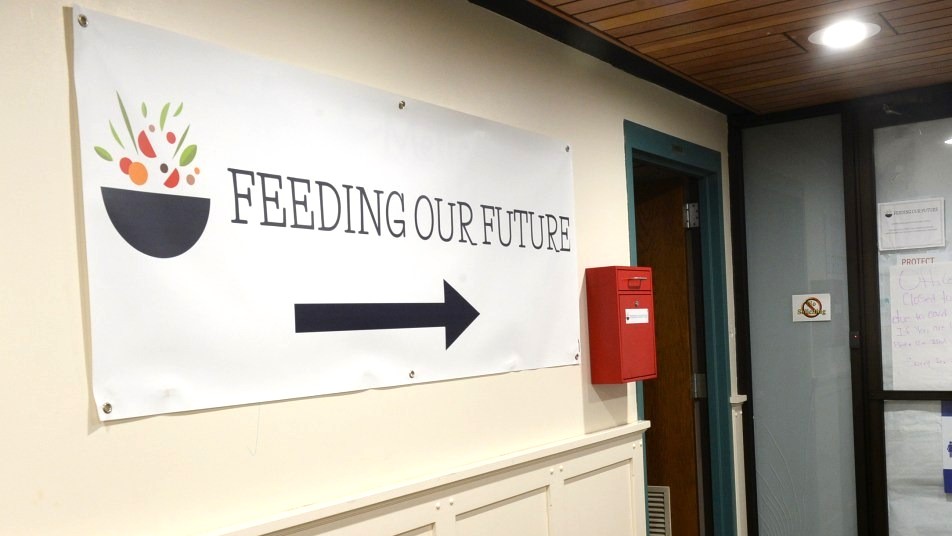
First Feeding Our Future defendant sentenced gets 12 years
A federal judge on Tuesday handed a 12-year prison term to the first defendant in the Feeding Our Future case to be sentenced.
Mohamed Jama Ismail, the former co-owner of Empire Cuisine & Market in Shakopee, is one of five people convicted in June of stealing tens of millions of dollars from taxpayer-funded child nutrition programs.
A federal jury in Minneapolis found Ismail, 51, guilty of wire fraud conspiracy, and two money laundering counts. Jurors also convicted four of Ismail’s co-defendants but acquitted two others. Ismail also must serve three years on supervised release.
Over a month, the government showed jurors hundreds of pages of falsified invoices, doctored meal site attendance sheets and text messages showing that Ismail and his co-defendants made more than $49 million in reimbursement requests to the Child and Adult Care Food Program and the Summer Food Service Program, falsely claiming that they served millions of meals to children in need.
As part of the sentence, U.S. District Judge Nancy Brasel ordered Ismail, of Savage, to pay restitution of $47,920,514 along with his co-defendants.
The Minnesota Department of Education, which oversees the USDA programs on the state level, paid out nearly $48 million to the group connected to Empire Cuisine. Sponsors of the meal sites, the nonprofits Feeding Our Future and Partners in Nutrition, kept about $5.6 million in administrative fees, according to court documents. Prosecutors say this was part of a much larger $250 million scheme in which they’ve charged 70 people since September 2022.
Prosecutors allege that the defendants exploited rule changes during the pandemic that initially allowed for-profit restaurants to participate. When the state education department suspected fraud and stopped allowing restaurants to take part, Ismail and his co-defendant Abdiaziz Farah opened phony meal sites under various nonprofits to continue the cash flow.
Assistant U.S. Attorney Joe Thompson asked Brasel to impose a 12½-year prison term. In a filing ahead of sentencing, Thompson said Ismail “profited handsomely” from his role in the scheme, expressed no remorse for it, and personally took home more than $2 million in 2021 alone.
Thompson said Ismail “will leave prison a rich man” after transferring much of the stolen money abroad — including to China — and to Kenya and Somalia where he bought real estate. Thompson says these international real estate holdings are beyond the reach of U.S. law enforcement and are unlikely to be seized.
At the hearing, Thompson added that Ismail and his co-conspirators “saw an opportunity in a health crisis, and they took advantage of it to the tune of tens of millions of dollars.”
Ismail’s attorney, Patrick Cotter, argued that his client should serve no more than four years in prison. Cotter wrote in court filings that Ismail was a “minor participant” in the conspiracy because he “did not have a full knowledge of the scope and structure of the criminal activity.”
Cotter argued that the lead defendant, Farah, controlled all the bank accounts, handled all the communications with Feeding Our Future and Partners in Nutrition and had full decision-making authority.
In court on Tuesday, Cotter said Ismail does not present a threat to the public or pose a risk of reoffending.
“There is not an ongoing need for a lengthy prison time to effectively correct him and protect the rest of us,” Cotter said.
“I’m not a bad person, I’m just a family man. I’m a normal person,” Ismail said in a brief statement that he read from the courtroom lectern with Cotter at his side.
Before imposing the 12-year sentence, Brasel said Ismail stole “an extraordinary amount of money in an extraordinarily short time.”
“When a disaster occurs, many of us in the United States were taught to look for the helpers. In the global pandemic, they were plentiful,” Brasel added. “At a time when the world was at its most vulnerable, you decided not to be a helper but to be a thief.”
Ismail has already completed a seven-month sentence after pleading guilty previously to falsely claiming on a passport application that he lost his passport when in reality the FBI had seized it during a search of his home in early 2022. Agents arrested Ismail at Minneapolis-St. Paul International Airport several months later when he tried to flee to Kenya.
Prosecutors and defense attorneys requested delays of other sentencing hearings scheduled this week for Farah and two others convicted at trial. The attorneys said they had to sort through the details of a related jury bribery case.
At the end of the trial, an associate of the defendants admitted driving to the home of one of the jurors, dropping off a Hallmark gift bag containing $120,000 and promising more cash in exchange for an acquittal. The juror called 911.
Ladan Ali, the woman who delivered the money, pleaded guilty, as did one of her co-defendants. Two of the defendants from the fraud trial and one of their brothers were also charged and have pleaded not guilty.
Related Articles
Woodbury man sentenced to prison for embezzling $145K from MSP Chick-fil-A
St. Paul postal worker shot boss five times, critically wounding the Eagan man, charges say
‘This violence must stop’: Shooting in St. Paul’s North End is third homicide in 4 days in city
Defense attorneys ask to toss Iron Range Hells Angels charges after attorney-client breach
Man arrested in shooting of coworker at St. Paul post office


